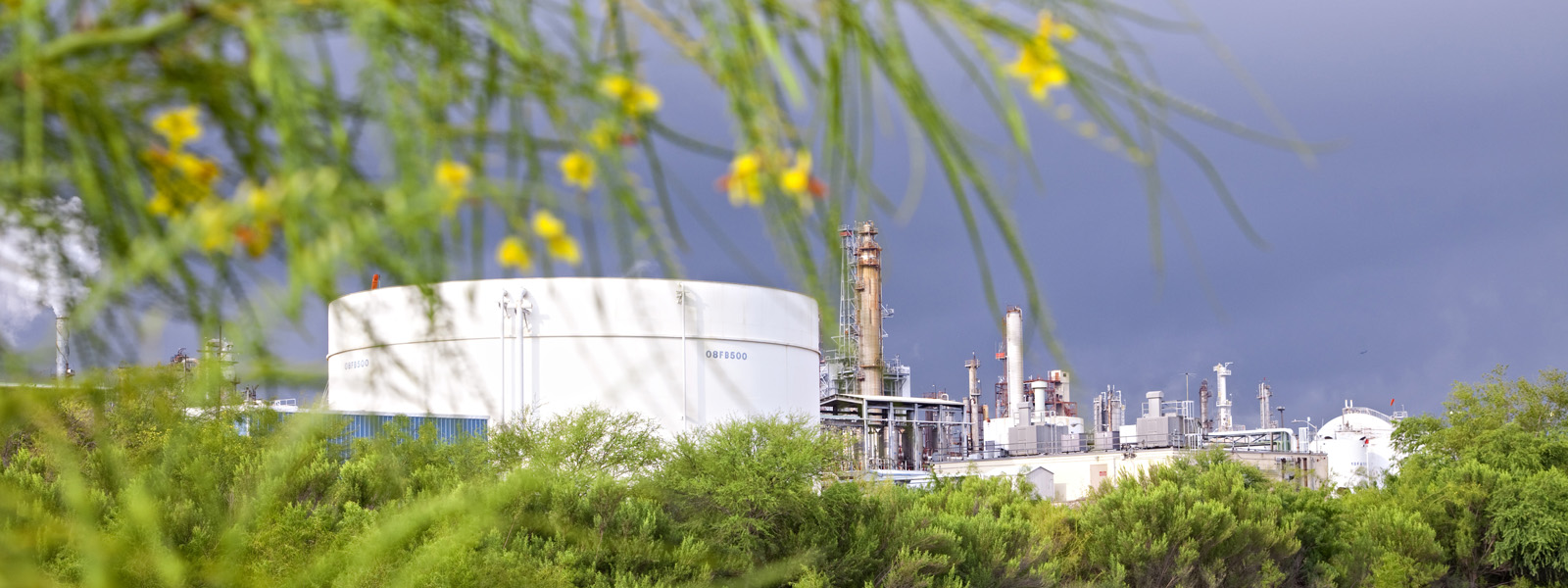
December 12, 2013
Flint Hills Resources has agreed to implement additional emission reduction measures and more stringent monitoring for proposed projects that would create new processing capabilities at its West Refinery in Corpus Christi.
In August 2012, the company said it was considering spending more than $250 million to enable its West Refinery to process more Eagle Ford crude oil while extending its ability to reduce criteria air emissions.
“From the beginning, we worked to understand the concerns of the community and environmental groups regarding new projects being announced. As a result, the initial project designs included strong emission reduction components,” said Valerie Pompa, vice president and manufacturing manager for Flint Hills Resources Corpus Christi. “Through our continued discussion with the Environmental Integrity Project and the University of Texas Environmental Law Clinic, the projects are now even better.”
As a result of an agreement reached with Environmental Integrity Project (EIP) and the University of Texas Environmental Law Clinic, which represent Citizens for Environmental Justice and others, Flint Hills Resources has agreed to:
• Lower emission limits on several storage tanks at its West Refinery
• Set stack exhaust temperature limits for new and modified heaters, which will ensure that the heaters operate in a way that minimizes energy use
• Establish lower sulfur dioxide (SO2) limits on the combustion of fuel gas in heaters throughout the refinery
• Engage a third party to perform energy efficiency audits on several key process units and heaters and identify future energy efficiency opportunities
“Many of these measures are above and beyond regulatory requirements,” Pompa said. “We are committed to run clean, safe operations that will benefit our entire community.”
The new projects are currently in the permitting stage. An application for a greenhouse gas permit was submitted to the U.S. Environmental Protection Agency in December 2012. A state air permit application was also submitted around that time. The initial public comment phase for the state air permit application was in February.
If the projects are approved, new construction will require up to 1,000 contractors. Following completion, full-time employees will be added. More information on the projects can be found at www.fhrcorpuschristi.com.
Flint Hills Resources has been a part of the Corpus Christi community since 1981. Over the past two years, the company has completed the following voluntary emission reduction projects at its West Refinery:
• Installing a state-of-the-art suspended cable roof on a tank that typically stores benzene
• Taking some tanks out of service and installing upgraded seal technology and fittings on other tanks
• Increasing leak detection monitoring frequency for certain units and equipment in benzene service
“We continue to strive to be a good corporate partner and a good corporate citizen. South Texas is seeing an amazing amount of growth and with long-term crude oil production expected to continue to rise, we believe the Eagle Ford shale play will continue to provide many benefits for Texas and for the Coastal Bend,” Pompa said. “Our current projects are focused on continuing to grow our business, while also keeping our community a great place to work and live."
About Flint Hills Resources
Flint Hills Resources, LLC, through its subsidiaries, is a leading refining, chemicals and biofuels company. It has expanded its operations through capital projects and acquisitions worth more than $7.6 billion since 2002. With more than 4,000 employees, Flint Hill Resources strives to create value for customers and society. More at www.fhr.com.
Flint Hills Resources’ West and East refineries in Corpus Christi have a processing capability of about 300,000 barrels of crude per day, with 75 percent being domestic crude. FHR employs more than 1,200 people full-time and can have an additional 400 to 2,000 contractors working at the refineries on a daily basis.
Read a related editorial from the Corpus Christi Caller Times.